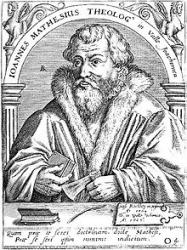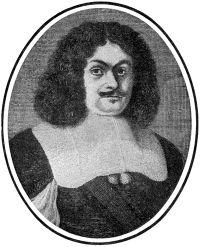
1557 - 1622 Hymnal Number: 461 Author of "O Jesu Christ, mein's Lebens Licht" in Die Kleine Geistliche Harfe der Kinder Zions Behm, Martin, son of Hans Behm [Bohme, Boehm, Behemb, Behem, Boheim, Bohemus or Bohemius], town-overseer of Lauban in Silesia, was born at Lauban, Sept. 16, 1557. During a protracted famine, 1574, Dr. Paul Fabricius, royal physician at Vienna, a distant kinsman, took him to Vienna, where he acted as a private tutor for two years, and then went to Strassburg, where, from Johann Sturm, Rector of the newly founded University, he received much kindness. Returning home at his mother's request after his father's death, May, 1580, he was, at Easter, 1581, appointed assistant in the Town School, and on Sept. 20, ordained diaconus of the Holy Trinity Church. After his senior had been promoted to Breslau the Town Council kept the post nominally vacant for two years, and then, in June, 1586, appointed Behm chief pastor. For 36 years ho held this post, renowned as a preacher, as a faithful pastor in times of trouble (famine 1590, pestilence 1613, war 1619), and as a prolific author. After preaching on the tenth Sunday after Trinity, 1621, he was seized with illness, and after he had lain for twenty-four weeks on a sick bed, there was ministered to him, on Feb. 5, 1622, the abundant entrance of which he sings in his hymn, "O Jesu Christ, meins Lebenslichtr” (Koch, ii. 227-234; Allg. Deutsche Biographie,ii. 282).
He was one of the best hymn-writers of his time. His hymns are true and deep in feeling, dwelling specially on the Passion of Our Lord. They speedily passed into the hymn-books, and long held their place therein. Of about 480 hymns which he composed, the most important appeared in his:—
(1) Centuria precationum rhythmicarum, Wittenberg, 1606 (2nd ed., 1611).
(2) Centuria secunda precationum rhythmicarum, Wittenberg, 1608 (2nd ed., 1611).
(3) Centuria precationum rhythmicarum, "Wittenberg, 1615 (complete edition of the Three Centuries, Jena and Breslau, 1658). A selection of 79 Hymns, ed., with an introduction, by W. Noldeke, appeared at Halle in 1857.
Four of his hymns have been translated into English, three being in English common use:—
i. O Heilige Dreifaltigkeit. [Morning.] First published in his Kriegesman, Leipzig, 1593, in 7 st. of unequal length, repeated in 1608, as above, in 8 stanzas of 4 lines. Both forms are in Wackernagel, v. p. 197; and the second in Noldeke, 1857, p. 53; and, omitting stanzas vi.-viii., as No. 1126 in the Berlin G. L. S., ed. 1863. In 1593 it was entitled " The ancient Sancta Trinitas et adoranda (Jnitas in German;" but it is rather a versification of the Prayer for Wednesday evening in J. Habermann's Gebet Buck (Wittenberg, 1567). The translations in common use, both of the second form, are:—
1. O Thou most Holy Trinity. A very good translation of stanzas i., iii.-v., by A. T. Russell, as No. 2 in his Ps. and Hys., 1851, and thence in Kennedy, 1863, and Dr. Thomas's Augustine H. Bk., 1866.
2. O holy, blessed Trinity, Divine. A good translation of stanzas i.-v. by Dr. C. H. L. Schuette, as No. 295 in the Ohio Luth. Hymnal, 1880.
3. O holy, holy, holy Three, by H. J. Bucholl, 1842, p. 21.
ii. O Jesu Christ, meins Lebens Licht. [For the Dying.] His finest hymn. First pub.lished in a collection entitled Christliche Gebet, 1610, and then in his Zehen Sterbegebet, appended to his Centuria secunda, 1611 (see above), in 14 stanzas of 4 1., entitled " Prayer fora happy journey home, founded upon the sufferings of Christ." Thence in Wackernagel, v. p. 235, Noldeke, 1857, p. 79, and the Unv. L. S., 1851, No. 835. The translations in common use are:—
1. Lord Jesus Christ, my Life, my Light. A very good translation by Miss Winkworth in her Lyra Ger., 2nd Series, 1858, p. 213, st. v., x. being omitted and viii., ix. combined as one stanza. In her Chorale Book for England, 1863, No. 190, she omitted her stanzas v., vi., and united her stanzas iv., vii. as iv. This translation is included more or less abridged in Wilson's Service of Praise, 1865, and in America in the Baptist Hymn Book, Phil, 1871, the Methodist Episcopal Hymnal, 1878/and the Ohio Lutheran Hymnal, 1880, &c.
2. Lord Jesus Christ, my soul's desire. A good and full translation by Dr. John Ker in the Juv. Miss. Mag. of the U. P. Church, May, 1858, p. 25. Stanzas i., iii, v., vii. form No. 49 in the Ibrox Hymnal, 1871.
Other translations are:—
(l) "Lord Jesu, fountain of my life." by J. C. Jacobi, 1725, p. 52 (1732, p. 195), and repeated in the Moravian hymn books combined in 1826 with J. Cennick's "Though I'm in body full of pain." (2) "Jesu, my light and sure defence," as No. 54 in the Moravian Hymn Book 1742. (3) “O Jesu, life-light of my way," by Miss Warner, 1858 (ed. 1861, p. 176).
iii. O Konig aller Ehren. [Epiphany.] Founded on St. Matthew ii., and first published 1606 as above, in 6 stanzas of 8 lines. Thence in Wackernagel, v. p. 210, Noldeke, 1857, p. 31, and the Unv. Leidersegen, 1851, No. 79. The translations in common use are:—
1. O King of Glory, David's Son. A double C. M. version of stanzas i., ii., v., vi. by Miss Winkworth in her Lyra Germanica, 2nd Series, 1858, p. 20, and thence in Dr. Pagenstecher's Collection, 1864, No. 33. Her 2nd translation:—
2. O Jesu, King of Glory, No. 37 in her Chorale Book for England, 1863, is the above version rewritten to the original metre. In the Ohio Lutheran Hymnal, 1880, No. 54, with translation of st. iii., iv. added.
iv. Das wait Gott Vater und Gott Sohn. [Morning Prayer.] First published 1608 as above, in 11 st., and thence in Wackernagel, v. p. 215, in Noldeke, 1857, p. 51. Translated as "O God Almighty, Father, Son," by H. J. Buckoll, 1842, p. 15.
-John Julian, Dictionary of Hymnology (1907)
Martin Behm


 My Starred Hymns
My Starred Hymns






